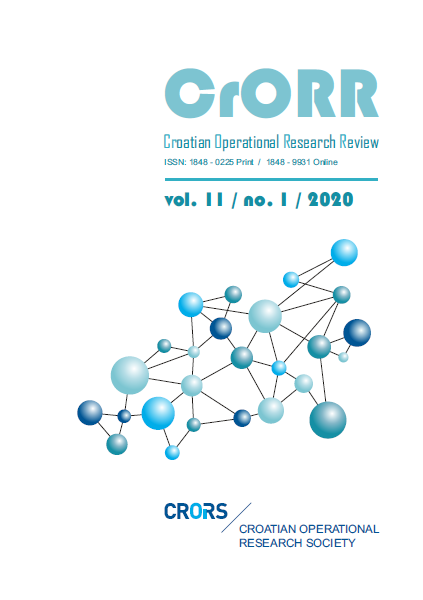On impatience in Markovian M/M/1/N/DWV queue with vacation interruption
Abstract
The aim of this paper is to establish a cost optimization analysis for an $M/M/1/N$ queuing system with differentiated working vacations, Bernoulli schedule vacation interruption, balking and reneging. Once the system is empty, the server waits a random amount of time before he goes on working vacation during which service is provided with a lower rate. At the instant of the service achievement in the vacation period, if there are customers in the system at that time, the vacation is interrupted and the server returns to the regular busy period with probability $\beta'$ or continues the vacation with probability $1 - \beta'.$ Once the working vacation is ended. The server returns to the normal busy period. If there are still no customers in the system, the server can take another working vacation of shorter duration. During working vacation periods, arriving customers become impatient with an individual timer which is exponentially distributed. Explicit expressions for the steady-state system size probabilities are derived using recursive technique.
Further, interesting performance measures are explicitly obtained. Then, we construct a cost model in order to determine the optimal values of service rates, simultaneously, to minimize the total expected cost per unit time by using a quadratic fit search method (QFSM). Finally, numerical illustrations are added to validate the theoretical results.
Downloads
Published
Issue
Section
License
- Authors retain copyright and grant the journal right of first publication with the work simultaneously licensed under a Creative Commons Attribution License that allows others to share the work with an acknowledgement of the work's authorship and initial publication in this journal
- Authors are able to enter into separate, additional contractual arrangements for the non-exclusive distribution of the journal's published version of the work (e.g., post it to an institutional repository or publish it in a book), with an acknowledgement of its initial publication in this journal.
- Authors are permitted and encouraged to post their work online (e.g., in institutional repositories or on their website) prior to and during the submission process, as it can lead to productive exchanges, as well as earlier and greater citation of published work (See The Effect of Open Access).


